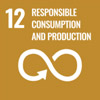Prohibit the use of child labor and all forms of forced or compulsory labor. Respect and protect the fundamental rights of employees.
Eliminate all forms of slavery and forced labor, ensuring work hours do not exceed legal limits.
Treat all employees with respect and equality. Actively discourage and combat discrimination, bullying, intimidation, and harassment in the workplace. Ensure there is no discrimination in hiring or promotion based on race, religion, age, nationality, gender, marital status, pregnancy, etc. Prohibit from requiring employees or job candidates to undergo discriminatory medical tests.
Recognize and respect employees' legal rights to freely associate and engage in collective bargaining.
Ensure employees' rights to fair wages, benefits, vacation time, and social insurance are protected.







